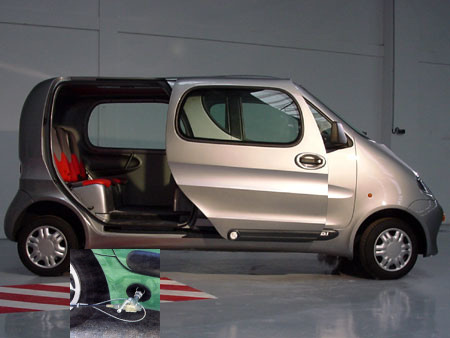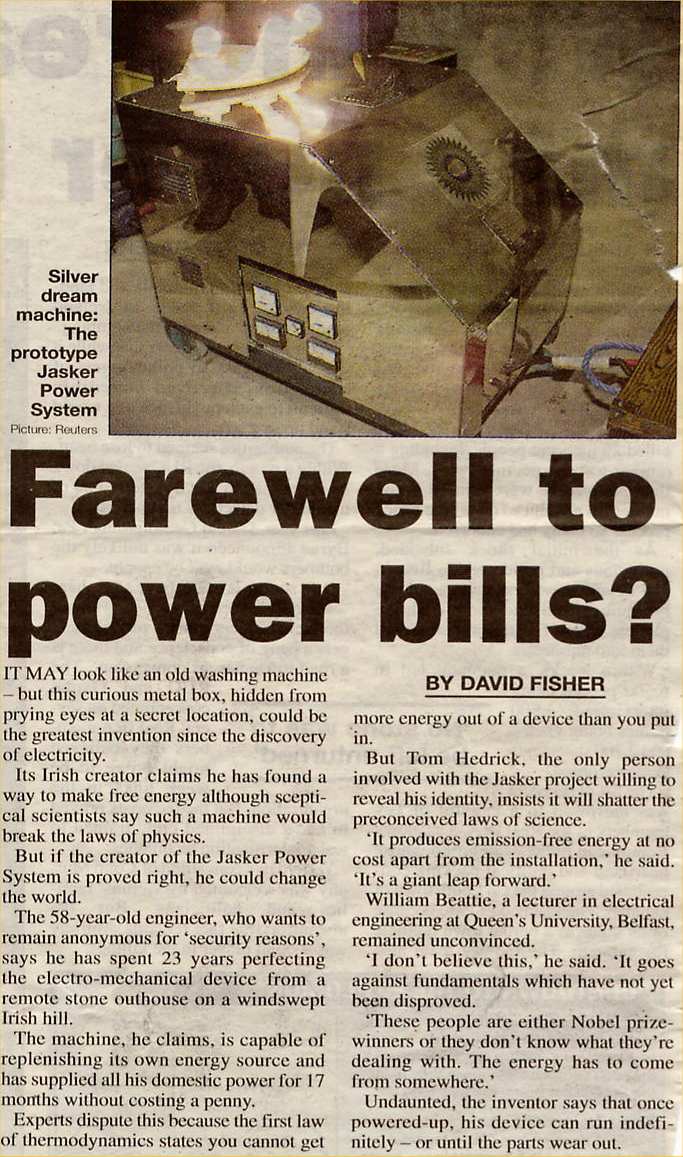Environment
Cut tuna fishing quota, says WWF |
||
|
THE EU was urged yesterday to lower its tuna fishing quota amid fears that stocks are on the verge of extinction because of overfishing. |
||
Metro 29/03/07 |
||
The £5,500 car which runs on air |
||
 |
||
BY SUZY AUSTIN |
||
|
IT IS the ultimate green machine - a car which runs entirely on air. The vehicle's new engine, hailed as 'one of the biggest technological advances of the century', uses air compression to turn the pistons without creating any pollution. Once out on the motorway, the light-weight vehicle can reach 1lOkph (68mph). The first car to go into production using the new technology is the MiniCAT. The £5,500 fibreglass car will cost just £1 to charge up for eight hours of city dri-ving or to cover 200km (124miles). Moteur Development International, based in Nice in the South of France, spent 14 years developing the engine. It stores compressed air in tanks and uses it to push the pistons while the air conditioning system uses cold air expelled by the engine. The air tanks can be recharged by usiflg a small, mains-powered compressor. MDI also envisages users charging their cars at air pumps on petrol station forecourts. MDI founder. Guy Negre, said: 'Com-pressed air technology allows for engines that are both non-polluting and economical. 'Unlike electric or hydrogen-powered vehicles, our vehicles are not expensive and do not have a limited driving range.' India's largest motor company, Tata Motors, has just signed a deal to make MDI's cars. It is unclear when the first vehicles will be rolled out. |
||
| The Air Car Website | Metro 26/03/07 |
|
Monkfish off the menu at stores |
6bn Carrier bags wasted |
|
| ASDA has banned sales of monkfish from its 300 stores after concern the species could disappear from British waters. Despite its ugly appearance - its head is one-third the size of its body - monkfish has become popular because of its firm white flesh. The supermarket claimed it acted following a plea from Greenpeace, which said the move was essential to help replenish fish stocks. | BRITONS wasted 6 billion plastic bags weighing 40,000 tonnes last year - enough to cover London. Although 65 per cent of us consider being good to the environment ‘a crucial part of modern life’, 42 per cent fail to recycle carrier bags, researchers found. One in ten people accept a bag for an item they will consume immediately and then throw it away seconds later, they added. And the average adult discards 2.39 bags a week. Researchers at Somerfield supermarket said: ‘There is no excuse for not being as efficient as we can’. | |
Metro 01/02/07 |
Metro 09/02/07 |
|
The Rape of the Artic |
||
 |
||
|
BY SARAH HILLS
The Arctic faces a huge threat from millions of tonnes of industrial chemicals, a major report claims today. |
||
Metro 17/02/05 |
||
Jasker Power System |
||
 |
||
Why the H-car is now a step nearer |
||
|
A SCIENTIFIC breakthrough could spell the end of the petrol engine. |
||
| Friday, October 15, 2004 METRO | ||